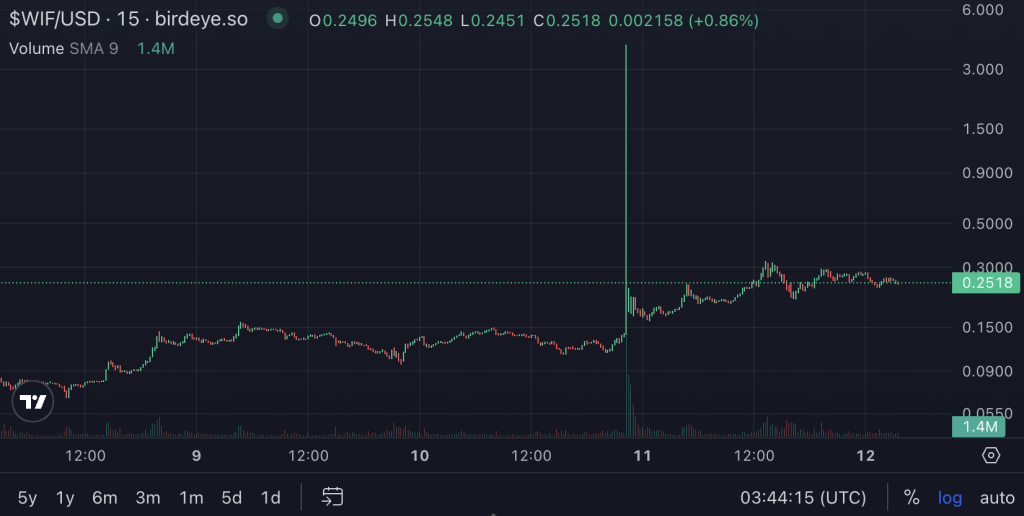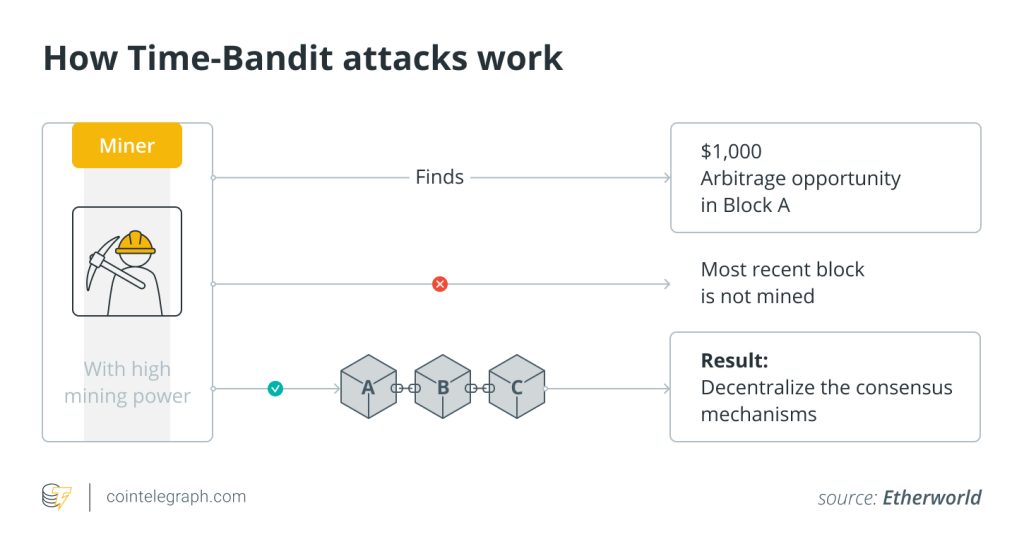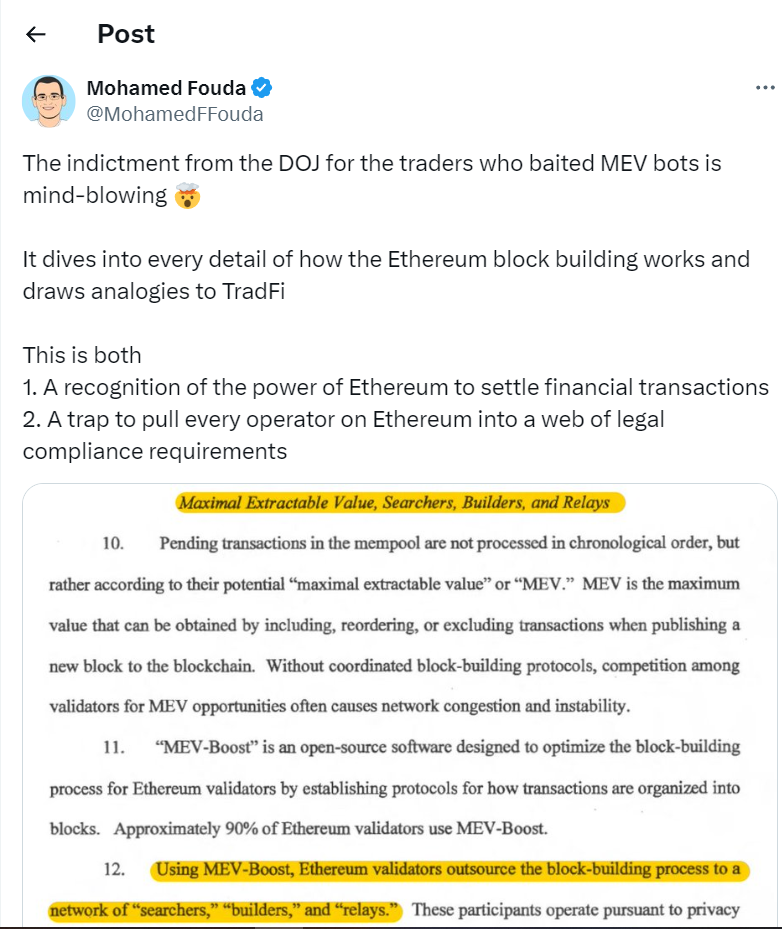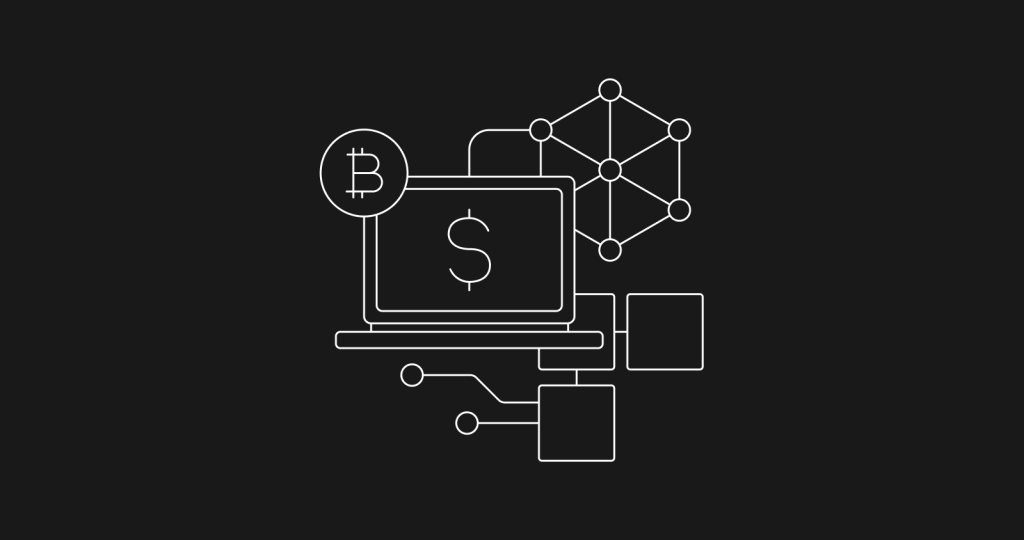MEV bot pulls $1.7M profit from a single ‘inefficient’ Dogwifhat trade

A Solana-based maximum extractable value (MEV) bot netted the staggering sum by backrunning a trader when they purchased $8.9 million worth of the memecoin.

A Solana-based maximum extractable value (MEV) bot managed to rake in a staggering $1.7 million from a single questionable trade — which occurred when a trader made a $9 million purchase of memecoin Dogwifhat (WIF) “in the most inefficient way possible.”
The maximum extractable value (MEV) bot, run by 2fast, swapped 703 Solana (SOL) to 490,000 WIF and then swapped that same amount of WIF into 19,035 SOL within the same transaction bundle, netting itself a profit of $1.73 million, per Solscan data.

MEV bots are automated programs that scan blockchain networks to identify profitable trading opportunities and execute those orders automatically.
The bot utilized a tool developed by Jito Labs, the development arm of Solana liquid staking protocol Jito. The tool — which operates similarly to flashbots on the Ethereum network — allows bots to search for maximum extractable value and place bids for inclusion in the transaction bundle.
This sudden arbitrage play was made possible following a trade executed by a single trader — zeroxtrading.sol — who purchased a whopping $8.9 million of the memecoin in a single order.
The outsized bid was made in a low-liquidity pool, which caused the order to be filled at roughly $3 per every WIF token, roughly 1,400% more than the token was worth at the time. The subsequent and immediate drop following the transaction saw the trader lose 92% of their funds instantly.
In a Jan. 11 X post, pseudonymous developer Pland wrote that the MEV bot utilized a relatively “simple” backrunning strategy to capture the gain from the trader who executed the WIF order in the most “inefficient way possible.”
2Fast, the mev bot used JITO to bundle both the buyer transaction and his transaction and included a 890 SOL tip
The bot bought 490k WIF for 703 SOL from raydium concentrated liquidity
To sell it for 19 035 SOL on the same transaction pic.twitter.com/sAbSVwOEZx— Pland (@Pland__) January 11, 2024
Backrunning is considered less harmful to a blockchain network, as it only captures the arbitrage opportunity presented by a large mispriced trade and doesn’t impact the initial trade.
This stands in contrast to the more nefarious “sandwich” attacks, which involve sandwiching an order between two transactions to cause the initial bid to be repriced. This frequently impacts the price of the initial trade and leaves blockchain users at a loss.
Related: Solana now boasts more than 2,500 monthly active developers
Overall, the single transaction caused the price of WIF to briefly spike as high as $4.

While the trader is still deeply out of pocket for their misplaced order, the giant candle inspired degens to begin snapping up WIF again, with the memecoin posting a 50% gain from the point immediately after the drop.






… [Trackback]
[…] Find More Info here on that Topic: x.superex.com/news/blockchain/2407/ […]
… [Trackback]
[…] Find More Information here to that Topic: x.superex.com/news/blockchain/2407/ […]
… [Trackback]
[…] Find More Info here to that Topic: x.superex.com/news/blockchain/2407/ […]
… [Trackback]
[…] Information to that Topic: x.superex.com/news/blockchain/2407/ […]
… [Trackback]
[…] Info on that Topic: x.superex.com/news/blockchain/2407/ […]
… [Trackback]
[…] Find More to that Topic: x.superex.com/news/blockchain/2407/ […]
… [Trackback]
[…] Read More here to that Topic: x.superex.com/news/blockchain/2407/ […]
… [Trackback]
[…] Info on that Topic: x.superex.com/news/blockchain/2407/ […]
… [Trackback]
[…] Find More Information here to that Topic: x.superex.com/news/blockchain/2407/ […]
… [Trackback]
[…] Info to that Topic: x.superex.com/news/blockchain/2407/ […]
… [Trackback]
[…] Find More here to that Topic: x.superex.com/news/blockchain/2407/ […]
… [Trackback]
[…] Find More Info here on that Topic: x.superex.com/news/blockchain/2407/ […]
… [Trackback]
[…] Read More Information here to that Topic: x.superex.com/news/blockchain/2407/ […]
… [Trackback]
[…] Here you can find 68768 more Information on that Topic: x.superex.com/news/blockchain/2407/ […]
… [Trackback]
[…] Here you will find 54660 additional Info to that Topic: x.superex.com/news/blockchain/2407/ […]